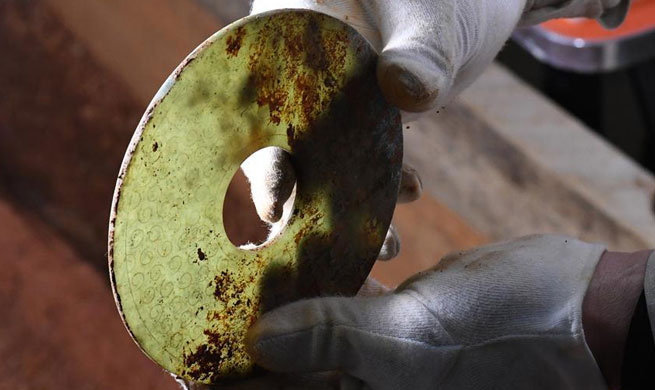SKOPJE, Jan. 29 (Xinhua) -- The Macedonian parliament resumed on Monday the discussions on the languages law, which was reintroduced to the parliament after being vetoed by President Gjorge Ivanov.
The Macedonian parliament adopted the languages law on Jan. 11 only with the votes of majority lawmakers given that the opposition has been against, calling it an unconstitutional law.
The new law on languages foresees a wider usage of the Albanian language, making it country's second official language. To the opposition here, this law discriminates other minorities living in Macedonia.
At a time when the government had stressed that it would adopt the law again at Jan. 29 session, the opposition led by VMRO-DPMNE submitted to the parliament a file with 32,000 amendments to the law, as the parliament cabinet told local media.
This means that the voting process will be delayed till all the amendments submitted by the opposition are discussed.
The ruling parties SDSM and DUI as well as BESA, an ethnic Albanian party, did not submit amendments to the law.
Despite such developments, Deputy Prime Minister Bujar Osmani told reporters Monday at a news conference that the law on use of languages would be adopted.
"We will adopt the languages law despite the rejection of President Gjorge Ivanov to sign it and the attempt of the opposition VMRO-DPMNE party to obstruct it by submitting amendments," Osmani told reporters.
According to him, the Law on Use of Languages stems from the amendment 5 from the Constitution of Macedonia and the Ohrid Framework Agreement and that by its adoption, the implementation of the political agreement adopted 17 years ago, will be completed.
Political experts here said Monday that the 32,000 amendments were a record number that would need several months to deliberate them.
According to the ruling SDSM, opposition lawmakers returned to the parliament Monday not to debate, but to block the voting process.
Artan Grupi, MP of SDSM, told reporters that the negative approach of the Macedonian opposition party, VMRO-DPMNE, towards the law that made Albanian second official language, could only slow the process down, but would not be able to stop it.
















